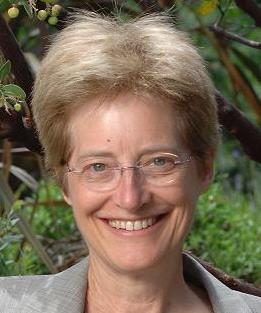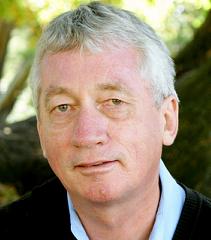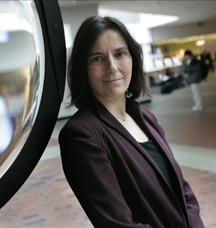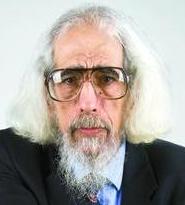|
Our Centennial Celebration will conclude at the 2010 Annual Meeting in Atlanta, Georgia. Ann Taves, 2010 President, has planned an interesting series of Plenary Addresses. The Atlanta program will return to single plenary speakers who will address the broad theme of religion and science, with particular attention to the ways that new research on the brain/mind and new scholarship on primatology can inform thinking about religion. Plenary speakers for the Atlanta meeting will include Frans B. M. de Waal, Emory University, and Anne Harrington, Harvard University. In addition, the AAR will hear from Jonathan Z. Smith, University of Chicago, who will deliver our “learning of a lifetime lecture.”
 Ann Taves, an internationally recognized historian of Christianity and of American religion, is the Virgil Cordano Chair in Catholic Studies at the University of California, Santa Barbara. Taves holds a PhD from the University of Chicago Divinity School. A prolific scholar and award-winning author, she is well known for her work on religious experience. Ann Taves, an internationally recognized historian of Christianity and of American religion, is the Virgil Cordano Chair in Catholic Studies at the University of California, Santa Barbara. Taves holds a PhD from the University of Chicago Divinity School. A prolific scholar and award-winning author, she is well known for her work on religious experience.
Over time, the focus of Taves’s research has shifted from answering historical questions about religion to using historical materials to explore how people make sense of ambiguous events and experiences that inhabit the indeterminate space between imagination and reality, craziness and inspiration, as well as fiction and faith. Increasingly her attention has turned to the underlying processes whereby people decide that experiences and events are religious and then, in some cases, develop traditions of practice to recreate them in the present. In exploring these processes, she works comparatively to generate the detailed descriptive analyses favored by scholars of religion and to explore the naturalistic explanations developed by researchers in the social and natural sciences.
Taves’s current research project, Channeled Entities and Revealed Texts: A Group Psychology of Revelation, looks at the process whereby new entities and/or new texts emerge. The focus of her analysis is on selected twentieth century new age channelers compared and contrasted with earlier new religious movements, such as Mormonism, and nonreligious phenomena, such as alter personalities, imaginary companions, fictional characters, and computer based avatars.
| |
|
|
| |
A30–404
Presidential Address — Ann Taves: “Religion” in the Humanities and the Humanities in the University
Saturday, 8:00 PM–9:00 PM
Hyatt Regency – Centennial II–IV
In recent discussions of the concept of religion, scholars of religion have paid considerable attention to the relationship between the “religious” and the “secular.” In doing so, they have focused our attention outward on the relationship between religion and the state and the historical developments we associate with modernity. If we turn our attention inward to the academy, we can ask how our subject matter is positioned in relation to the subject matters of other disciplines in the humanities. What, we might ask, is the relationship between the subject matter of departments devoted to religious studies, art, literature, philosophy, music, and theater? This question focuses our attention on the place of religious studies in the humanities and in the academic landscape of the modern university more generally. Taves will suggest that an evolutionary perspective, which focuses on the emergent capacities that give rise to the subject matters that we study in the humanities, highlights the essential role that the humanistic disciplines play in our understanding of the human animal.
Kwok Pui Lan, Episcopal Divinity School, Presiding
Ann Taves, University of California, Santa Barbara, Panelist
|
|
|
| |
|
|
 Frans B. M. de Waal is a Dutch primatologist and ethologist. De Waal received his doctorate in biology from Utrecht University in 1977 after training as a zoologist. In 1981, he moved to the United States for a position at the Wisconsin National Primate Research Center, and in 1991 took his current position as the Charles Howard Candler professor of Primate Behavior in the Emory University psychology department in Atlanta, Georgia, and director of the Living Links Center at the Yerkes National Primate Research Center. Frans B. M. de Waal is a Dutch primatologist and ethologist. De Waal received his doctorate in biology from Utrecht University in 1977 after training as a zoologist. In 1981, he moved to the United States for a position at the Wisconsin National Primate Research Center, and in 1991 took his current position as the Charles Howard Candler professor of Primate Behavior in the Emory University psychology department in Atlanta, Georgia, and director of the Living Links Center at the Yerkes National Primate Research Center.
The contributions of de Waal to primatology started with Chimpanzee Politics: Power and Sex Among Apes (HarperCollins Publishers, 1982), which offered the first description of primate behavior explicitly in terms of planned social strategies. De Waal has never shied away from attributing emotions and intentions to his primates. Recently, de Waal’s work has emphasized animal empathy and even the origins of morality.
His research into the innate capacity for empathy among primates has led de Waal to the conclusion that non-human great apes and humans are simply different types of apes, and that empathic and cooperative tendencies are continuous between these species. His book Our Inner Ape: A Leading Primatologist Explains Why We Are Who We Are (Penguin Group, 2005) examines human behavior through the eyes of a primatologist, using the behavior of common chimpanzees and bonobos as metaphors for human psychology.
| |
|
|
| |
A30–140
Frans de Waal: Morality before Religion — Empathy, Reciprocity, and Fairness in our Fellow Primates
Saturday, 11:45 AM–12:45 PM
Hyatt Regency – Centennial II–IV
Homo homini lupus – “man is wolf to man” – is an old Roman proverb popularized by Thomas Hobbes. Even though it permeates large parts of law, economics, and political science, the proverb fails to do justice to our species' thoroughly social nature as well as to canids, which are among the most gregarious and cooperative animals. For the past quarter century, this cynical view has also been promoted by an influential school of biology, followers of Thomas Henry Huxley, which holds that we are born nasty as a result of “selfish” genes. Accordingly, it is only with the greatest possible effort that we can hope to become moral beings. Charles Darwin, however, saw things differently: he believed in continuity between animal social instincts and human morality. He wrote an entire book entitled The Expression of the Emotions in Man and Animals. Modern psychology and neuroscience support Darwin’s view about moral emotions. Human moral decisions often stem from “gut” reactions, some of which we share with other animals. de Waal will elaborate on the connection between morality and primate behavior. Other primates show signs of empathy, prosocial tendencies, reciprocity, and a sense of fairness that promote a mutually satisfactory modus vivendi. de Waal will review evidence for continuity to support the view that the building blocks of morality are older than humanity.
Ann Taves, University of California, Santa Barbara, Presiding
Frans de Waal, Emory University, Panelist
|
|
|
| |
|
|
 Anne Harrington, Chair of Harvard University’s History of Science department, specializes in the history of psychiatry, neuroscience, and the other mind and behavioral sciences. Harrington received her PhD in the History of Science from Oxford University. For six years, she codirected Harvard’s Mind, Brain, and Behavior Initiative. She also was a consultant for the MacArthur Foundation Research Network on Mind-Body Interactions. Currently, Harrington serves on the Board of the Mind and Life Institute, an organization dedicated to cross-cultural dialogue between Buddhism and science. She is also coeditor of Biosocieties, a journal concerned with social science approaches to the life sciences. Anne Harrington, Chair of Harvard University’s History of Science department, specializes in the history of psychiatry, neuroscience, and the other mind and behavioral sciences. Harrington received her PhD in the History of Science from Oxford University. For six years, she codirected Harvard’s Mind, Brain, and Behavior Initiative. She also was a consultant for the MacArthur Foundation Research Network on Mind-Body Interactions. Currently, Harrington serves on the Board of the Mind and Life Institute, an organization dedicated to cross-cultural dialogue between Buddhism and science. She is also coeditor of Biosocieties, a journal concerned with social science approaches to the life sciences.
Other research interests include the history of the neurological case history, and especially changing interests in the “inner world” of brain disorder; and the origins and larger significance of current visions of partnership between Buddhism and the brain sciences — so-called “contemplative neuroscience.”
| |
|
|
| |
A1–141
Anne Harrington: Religion and the Placebo Effect — Historical Issues, Present-day Challenges
Monday, 11:45 AM–12:45 PM
Hyatt Regency – Centennial II–IV
We know that the human body sometimes responds to a doctor’s reassuring words and the solace of sugar pills as if they were real treatments. Medicine calls this “the placebo effect.” For the past decade, humanistic scholars of medical practice have been interested in the complex, ambivalent ways that medicine and medical science imagines and employs this concept. What happens, though, when the concept of the placebo effect is invoked as an explanation in contexts where the suffering person has placed his or her faith, not in sugar pills or a fake injection, but in God’s divine mercy, or in the power of prayer? What changes? What is gained? What is at risk? We may not have to guess. Talk about the placebo effect can in fact be found these days in a range of uneasy conversations at the boundaries of religion and medical science. We see it being invoked in everything from arguments about the importance of the “faith factor” in healing, to projects designed to find out whether prayer “really” works, to arguments that our brains are “wired” to believe in God because doing so is good for our health. Where did all these different conversations and projects come from? How should we put the pieces together? And — most important — what are the larger take home questions and challenges for religious studies?
Ann Taves, University of California, Santa Barbara, Presiding
Anne Harrington, Harvard University, Panelist
|
|
|
| |
|
|
 Jonathan Z. Smith is a historian of religion whose research has focused on such wide-ranging subjects as ritual theory, Hellenistic religions, nineteenth century Maori cults, and the notorious events of Jonestown, Guyana. Smith graduated with a PhD in the history of religions from Yale University in 1969; with a dissertation on anthropological thought, focused on James George Frazer’s The Golden Bough and the method that Frazer used in the comparison of different religions. Since then much of Smith’s work has focused on the problem of comparison and how best to compare data taken from societies that are very different from one another. Jonathan Z. Smith is a historian of religion whose research has focused on such wide-ranging subjects as ritual theory, Hellenistic religions, nineteenth century Maori cults, and the notorious events of Jonestown, Guyana. Smith graduated with a PhD in the history of religions from Yale University in 1969; with a dissertation on anthropological thought, focused on James George Frazer’s The Golden Bough and the method that Frazer used in the comparison of different religions. Since then much of Smith’s work has focused on the problem of comparison and how best to compare data taken from societies that are very different from one another.
After holding positions at Dartmouth College and the University of California, Santa Barbara, Smith began teaching at the University of Chicago, where he served as Dean of the College from 1977–1982 and was appointed Robert O. Anderson Distinguished Service Professor of the Humanities. He has also written on pedagogy and the reform of undergraduate education in the United States. Smith’s recent research has focused on Western theories of difference ranging from contemporary accounts of alien abduction to Greek and Roman ideas about the way climate shapes human character.
| |
|
|
| |
A31–137
Jonathan Z. Smith — Reading Religion: A Life in Scholarship
Sunday, 11:45 AM–12:45 PM
Hyatt Regency – Centennial II–IV
Jonathan Z. Smith is a historian of religion whose research has focused on such wide-ranging subjects as ritual theory, Hellenistic religions, nineteenth century Maori cults, and the notorious events of Jonestown, Guyana. Smith graduated with a PhD in the history of religions from Yale University in 1969; with a dissertation on anthropological thought, focused on James Frazer’s The Golden Bough and the method that Frazer used in the comparison of different religions. Since then much of Smith’s work has focused on the problem of comparison and how best to compare data taken from societies that are very different from one another. After holding positions at Dartmouth College and the University of California, Santa Barbara, Smith began teaching at the University of Chicago, where he served as Dean of the College from 1977–1982 and was appointed Robert O. Anderson Distinguished Service Professor of the Humanities. Smith has also written on pedagogy and the reform of undergraduate education in the United States. Smith’s recent research has focused on Western theories of difference ranging from contemporary accounts of alien abduction to Greek and Roman ideas about the way that climate shapes human character.
Ann Taves, University of California, Santa Barbara, Presiding
Jonathan Z. Smith, University of Chicago, Panelist
|
|
|
| |
|
|
|
![PDF-NOTE: Internet Explorer Users, right click the PDF Icon and choose [save target as] if you are experiencing problems with clicking.](http://rsnonline.org/templates/rsntemplate-smallmasthead/images/pdf_button.png)



 Ann Taves
Ann Taves Frans B. M. de Waal
Frans B. M. de Waal Anne Harrington
Anne Harrington Jonathan Z. Smith
Jonathan Z. Smith